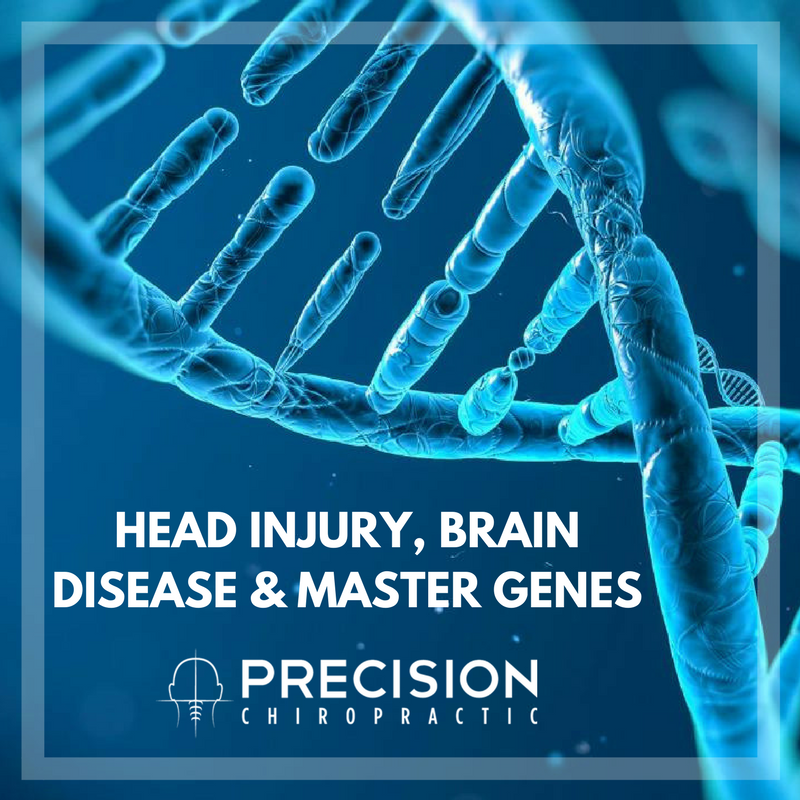
Head Injury, Brain Disease & Master Genes
It’s no secret that there’s a growing awareness about the short- and long-term ramifications of head injury. The NFL has an evolving concussion protocol and the scientific research studies that came out at the end of 2016 showed that youth football players had brain changes even without a concussion diagnosis. Head injuries, of course, are not just reserved for football players. The child on the playground, the cyclist, the fender-bender – nobody is immune.
Very recent research is making a connection between head injuries and the alteration of genes that can lead to some serious brain diseases. Researchers identified, for the first time, “master genes” in the brain that they believe are responsible for the control over hundreds of other genes which are linked to many neurological and psychiatric disorders:
Parkinson’s disease
Alzheimer’s
PTSD
ADHD
Autism
Depression
Schizophrenia
Stroke
What Is A Gene?
We hear all the time that many traits or conditions are genetic, or in one’s genes. What does this mean? The gene is the basic unit of heredity. If you could look inside any of your body’s 50 trillion cells, at the very center in the nucleus you’d find 46 chromosomes – 23 from your mother and 23 from your father. These chromosomes are the blueprints that hold the instructions to construct and maintain your body – your DNA. A gene is a distinct stretch of DNA that determines a specific characteristic about you, from your hair and eye color, to your susceptibility to certain inherited health conditions.
Damaged Gene –> Damaged Protein
The working theory of this current research is that these master genes are damaged after a traumatic brain injury and can trigger further damage to the other genes under their control. Genes have the potential to become one of many types of proteins. When the brain tissue is injured, the proteins they become can be irregular or damaged. Alternatively, the number of expressed copies of the gene can be altered, which can also prevent the gene from working properly. The bottom line is damaged gene = damaged protein = potential for disease such as Alzheimer’s.
What does this mean for people who have had traumatic brain injuries? The promising news in this early research is the potential for a gene-based blood test that can determine if a head injury has caused these changes. The ability to measure some of these genes may lead to early predictions of whether a person is at a higher risk of developing any of the related neurological or psychological conditions.
In the meantime, taking care of your brain after a head injury is always the best form of protection as far as future health conditions are concerned. A good omega-3 supplement, vestibular rehabilitation, NeuroStructural Chiropractic care, and time for the injured tissues to heal are your best lines of defense.
Head Injuries Can Alter Hundreds of Genes And Lead To Serious Brain Diseases
Brain Changes Seen In Youth Football Players Without Concussion


























































